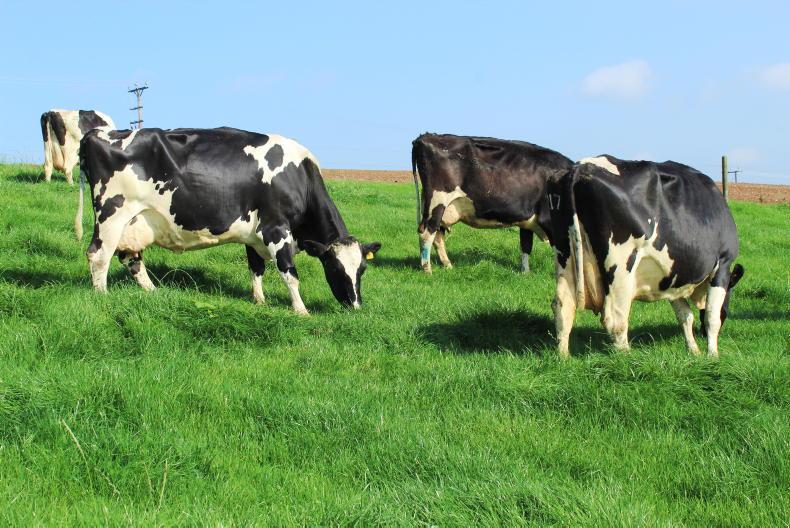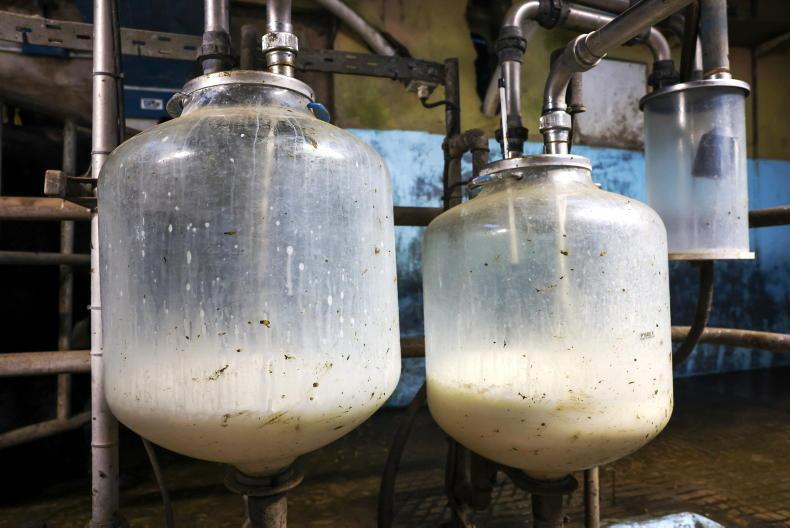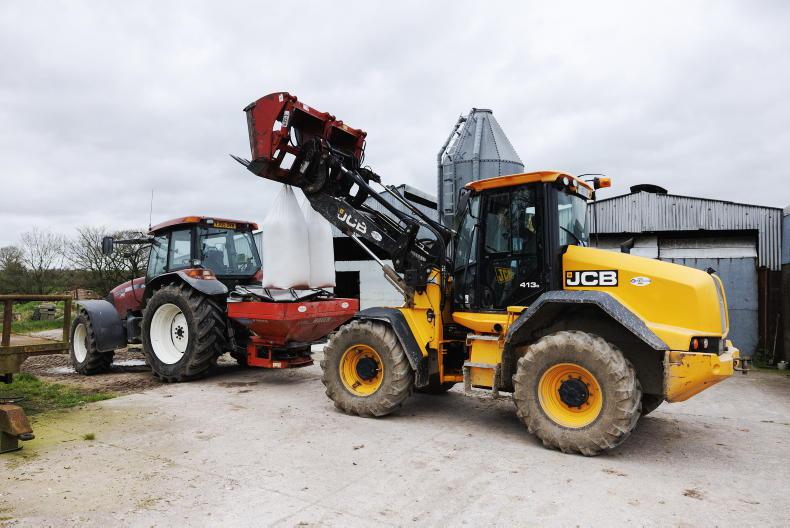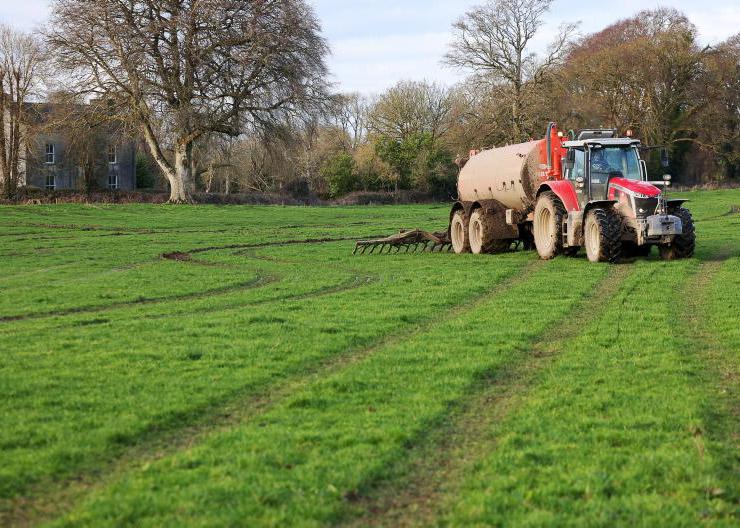The ICMSA has accused the Government of using the revised Nitrates Action Programme (NAP) to drive down dairy cow numbers in an effort to meet agriculture’s climate change targets.
In a scathing critique of the NAP, the farm body warned that changes to the Nitrates Derogation could result in a 25% reduction in cow numbers on some farms.
It claimed that a cut in cow numbers of this magnitude risked putting the future viability of many family-owned dairy operations in jeopardy.
“ICMSA believes the Government is using the nitrates regulations to meet our climate change commitment and this is totally unacceptable,” the ICMSA stated in a submission to the Joint Oireachtas Agriculture Committee.
Banding
The introduction of cow banding under the new NAP, and the possible move from 250kg of N per cow to 220kg, were identified as the primary tools to deliver a reduction in cow numbers.
“The combined impact of these measures is that a farmer with 30ha will have to reduce cow numbers by 22 [dropping from 84 to 62], while a farmer with 60ha will have to reduce cow numbers by 44 [dropping from 169 to 125] or a 26% reduction in cow numbers,” the ICMSA pointed out.
“How does the Government expect a farmer with investments based on a certain herd size to meet those debt repayments with 26% fewer animals?” the farm body asked.
“Despite comments from Government that there will not be a forced reduction in cattle numbers due to our climate change commitments, the reality today is that the changes in the nitrates regulations are leading to a forced reduction in cattle numbers and it will have a disproportionate impact on family dairy farms,” the submission argued.
The ICMSA also took aim at what it described as the “inadequate time” being given to assess the effectiveness of water quality actions under the Nitrates Derogation.
It claimed that a lag time of 12 to 18 months was typically needed before water quality trends improve following the introduction of specific measures.
“Given this, we cannot fairly judge measures introduced in 2021 and early 2022 until the EPA water quality data for 2023-2024 is released,” ICMSA maintained.
“Despite this, further new [water quality] measures are being introduced under the derogation that will have very serious impacts on family farms,” the farm body argued.
The ICMSA called for:
The Department of Housing, Local Government and Heritage and the Department of Agriculture to immediately review the nitrates regulations to eliminate the need for a reduction in cow numbers. The Department of Agriculture to publish the expected reduction in total cow numbers as a result of the NAP.An economic assessment to be carried out in relation to the impact on farm families and the wider rural and national economy as a result of the derogation changes.That proper supports to be put in place including an ACRES scheme designed for derogation farmers.
The ICMSA has accused the Government of using the revised Nitrates Action Programme (NAP) to drive down dairy cow numbers in an effort to meet agriculture’s climate change targets.
In a scathing critique of the NAP, the farm body warned that changes to the Nitrates Derogation could result in a 25% reduction in cow numbers on some farms.
It claimed that a cut in cow numbers of this magnitude risked putting the future viability of many family-owned dairy operations in jeopardy.
“ICMSA believes the Government is using the nitrates regulations to meet our climate change commitment and this is totally unacceptable,” the ICMSA stated in a submission to the Joint Oireachtas Agriculture Committee.
Banding
The introduction of cow banding under the new NAP, and the possible move from 250kg of N per cow to 220kg, were identified as the primary tools to deliver a reduction in cow numbers.
“The combined impact of these measures is that a farmer with 30ha will have to reduce cow numbers by 22 [dropping from 84 to 62], while a farmer with 60ha will have to reduce cow numbers by 44 [dropping from 169 to 125] or a 26% reduction in cow numbers,” the ICMSA pointed out.
“How does the Government expect a farmer with investments based on a certain herd size to meet those debt repayments with 26% fewer animals?” the farm body asked.
“Despite comments from Government that there will not be a forced reduction in cattle numbers due to our climate change commitments, the reality today is that the changes in the nitrates regulations are leading to a forced reduction in cattle numbers and it will have a disproportionate impact on family dairy farms,” the submission argued.
The ICMSA also took aim at what it described as the “inadequate time” being given to assess the effectiveness of water quality actions under the Nitrates Derogation.
It claimed that a lag time of 12 to 18 months was typically needed before water quality trends improve following the introduction of specific measures.
“Given this, we cannot fairly judge measures introduced in 2021 and early 2022 until the EPA water quality data for 2023-2024 is released,” ICMSA maintained.
“Despite this, further new [water quality] measures are being introduced under the derogation that will have very serious impacts on family farms,” the farm body argued.
The ICMSA called for:
The Department of Housing, Local Government and Heritage and the Department of Agriculture to immediately review the nitrates regulations to eliminate the need for a reduction in cow numbers. The Department of Agriculture to publish the expected reduction in total cow numbers as a result of the NAP.An economic assessment to be carried out in relation to the impact on farm families and the wider rural and national economy as a result of the derogation changes.That proper supports to be put in place including an ACRES scheme designed for derogation farmers. 









SHARING OPTIONS